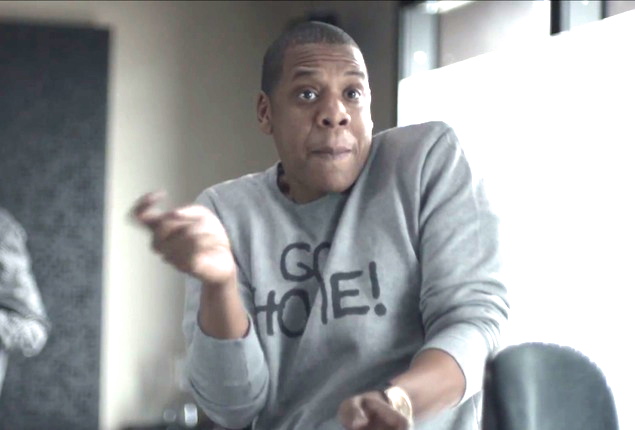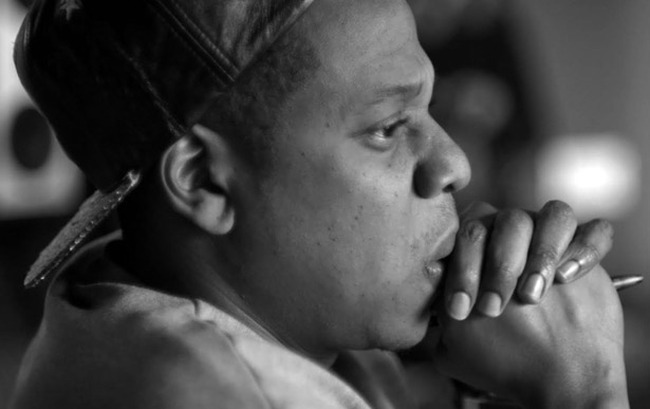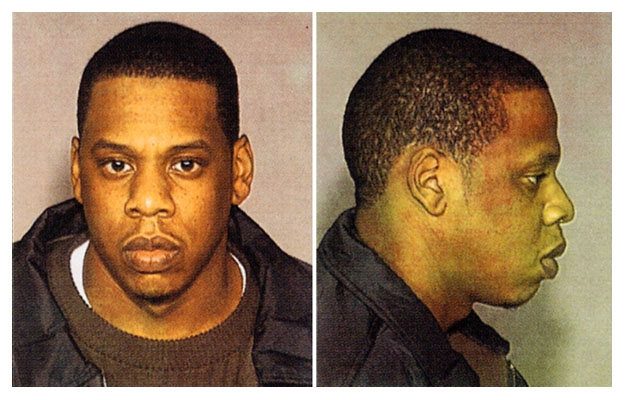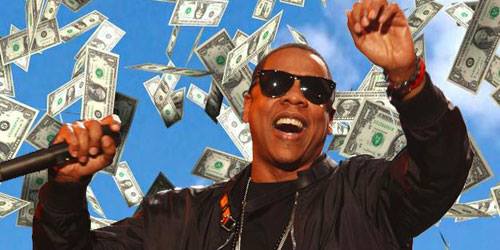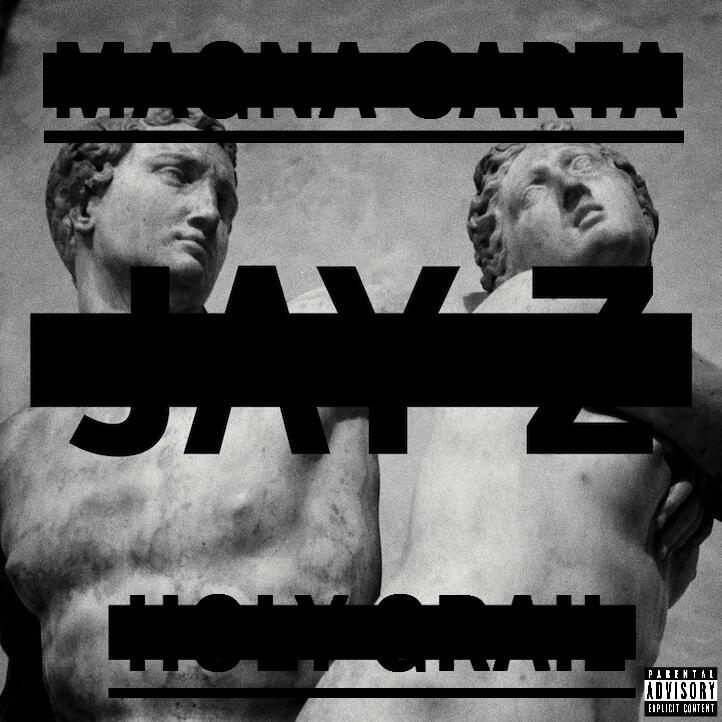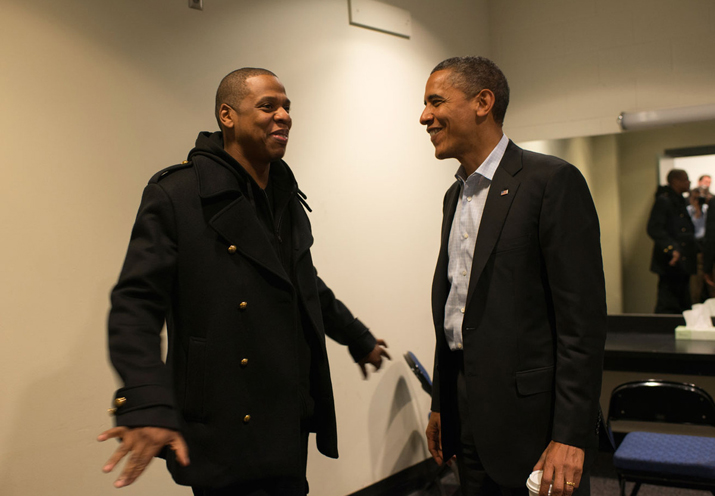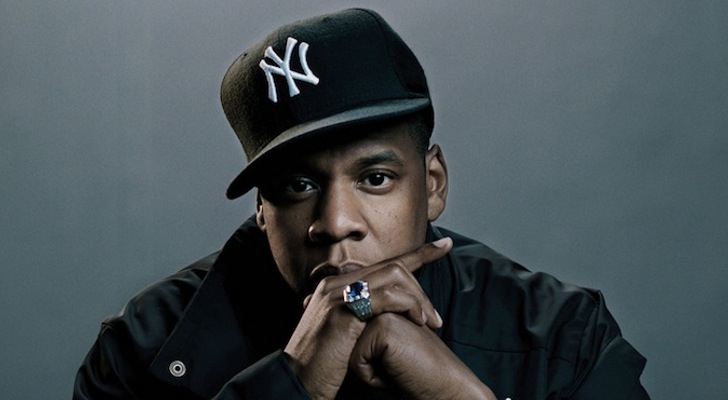If there’s one thing about my black nerd life that typically means I don’t fit in with mainstream ideas of what it means to be black, hip-hop is the usual suspect.
Despite the fact that I grew up in the same kind of neighborhoods that bred hip-hop, I’m not that big a fan.
Never really have been.
You won’t find much rap in my music collection, which is overrun with so-called alternative rockers, classic R&B and jazz.
There is some rap in there, usual of the blerd persuasion: The Roots, Kanye West, Mos Def, Donald Glover/Childish Gambino, and Talib Kweli, Public Enemy.
And, yes, Jay Z. I’ve been listening to Jay Z’s latest album, Magna Carta Holy Grail, and while it’s full of the bombastic bravado and Brooklyn-jerk vocals you expect from Hov, there’s something else going on here.
Anxiety. And lots of it.
He’s got anxiety over the fickle nature of fame, as someone who has been famous for nearly 20 years.
At age 43, Jay Z is way too old to be staying relevant in the rap game, let alone mainstream pop music. The anxiety that he’ll wither from within as someone young and hungry knocks him out.
No wonder the liner notes feature an image of Mike Tyson – another Brooklyn hoodlum who rose from the mean streets to riches by capitalizing on his urban menace – on the canvas from his shocking loss to Buster Douglas.
In MCHG, Jay Z wraps himself in anxiety like a cloak, or a king’s robes.
I’ve been thinking about anxiety a lot lately. The George Zimmerman trial will do that to a man, and I am still processing my feelings about the needless death of Trayvon Martin. In thinking about that case, I’ve thought about the anxiety of daily life those not belonging to the dominant class endure.
Particularly, the anxiety of never knowing when you may come under attack for existing. Not only those of us living in areas high in street crime and low on opportunity, but for those of us higher up on the socioeconomic ladder, that at any time could someone not black feel threatened by us, and could that cost us our lives or livelihood?
This kind of anxiety is a longtime part of black Americans’ history and present. And, according to Magna Carta Holy Grail, Jay Z is not immune.
MCHG spends a lot of time talking about the anxiety of place.
Jay Z has gone from poor street hustler/drug dealer to rich artist and businessman, and at this point in his life he is moving into the real of wealthy entrepreneur and investor. He hangs with Warren Buffet and President Obama. In other words, he’s made it.
But the double-edged sword of being a minority that bucks the typical socioeconomic status of your group can take a heavy psychological toll. You may lack the social capital of the world you’re going into, sitting in rooms full of people who don’t look like you. People ask how you got there – and trust me, that resume-checking is presumptive and an aggression against your personal dignity even if they don’t mean it to be.
You’re looking toward the future, haunted by the past. I’ve been there. Some days, I’m still there.
Jay Z has been rich a long time now, but he’s moving into the higher game of wealth. Chris Rock once described riches versus wealth as such: pro basketball player Shaq is rich, but the man who writes his check is wealthy. Rich can be lost, but you can’t get rid of wealth; it’s ownership in things that eternally make money, and then that money makes you more money. Imagine crashing a bunch of glass ceilings, only to find out more.
Jay Z is worth $475 million, and has a minority stake in the Brooklyn Nets basketball team. But his partner, the majority owner Mikhail Prokhorov, is worth $13 billion. Hov’s got a long way to go.
You hear it in “Somewhereinamerica,” when Jaz Z raps, “New money, they looking down on me / Blue bloods they trying to clown on me / You can turn up your nose high society / Never gone turn down the homie.”
He goes on to boast about buying out one blue blood’s house and inviting the neighbors to the housewarming. It’s a boast, but the kind of boast that is a shield to protect that privileged outsider from the social arrows hurled at him. It’s the kind of self-aggrandizement that can be written off in wider society as jerk behavior, but can be recognized throughout black history as building yourself up in a society that looks down on you. You better love you, because no one else will.
Jay underlines this fact in many times in Magna Carta Holy Grail.
He begins “F.U.T.W.” (fuck up the world) by saying, “just let me be great” and recalls Muhammad Ali. But, oddly, he goes back to Ali’s birth name Cassius Clay, the up-and-comer who boasted that he’d shocked the world. His anxiety of place comes through as he notes that most of his friends from where he grew up “died early twenties or late teens / I’m just trying to come from under the thumb of this regime.”
The anxiety of place appears in an increasingly frequent references to art. On Watch the Throne, Jay rhymed about Rothko and MOMA in “Who Gonna Stop Me.” In “Picasso Baby” on Magna Carta Holy Grail, Jay name-checks Jeff Koons, Andy Warhol, Jean-Michel Basquiat and the SAMO graffiti tag, the Metropolitan Museum of Art in New York, the Art Basel international art show, the Louvre and the Tate Modern, and of course, Pablo Picasso.
It’s not just that he’s boasting about “throning at the Met” and advising his daughter, Blue Ivy, to lean on his auction-acquired art because “you own it.” He mentions modern and contemporary artists who shook up the art world’s status quo. You’re making a statement when citing Koons, who combines high art and kitsch, divides art critics, and once married an Italian porn star.
Like these figures, Jay Z is a modern creation, and the art of his life now mixes high and low culture at each turn.
When a minority “makes it” in society, there’s a feeling if winning life’s lottery. I look at my own life – from a West Philly ghetto to Harvard – and my modest amount of success feels enough like I won something. So Jay Z’s lottery – from Brooklyn drug dealer to multimillionaire holding the president’s ear – is just staggering. You develop an astonishment expressed in the simple statement of “I’m not even supposed to be here.”
Once you say you aren’t supposed to be here, what’s next? Did you beat the statistics because you are better, or are you just lucky?
I hear it from Jay Z in “Crown,” “BBC” and “Nickels and Dimes” on MCHG. I heard LeBron James, the best basketball player in the world and a multimillionaire for a decade, say after being named this year’s NBA Finals MVP that he’s “from the inner-city. I’m not even supposed to be here. That’s enough.” These guys are thinking that at their station in life, and I do it just walking around the suburban town I live in with a Lululemon on the corner.
I’ve spent a lot my life feeling like a privileged outsider. When you are a minority who steps into space outside a stereotype, your very existence becomes a threat to the status quo. You yourself are a social change. You bear the burden of representing your group, as you’re the only one (or two) in the room.
But there’s one more burden: If you are the social change as a the privileged outsider, what kind of social change are you calling for? How much of the status quo do you actually disrupt? Do you celebrate the socioeconomic structure that elevated you and all your hard work? Do you take the throne and protect it? Or do you cast aside the throne, question its existence, or seek to dismantle it altogether?
Jay Z’s recent public tiff with Harry Belafonte about social responsibility and uplift has shown these clashes of outlook. He explores that anxiety most pointedly in “Nickels and Dimes,” talking about charity, and creating opportunities for others to improve themselves and climb the ladder as he did.
Any way you slice it, Jay Z’s life appears to be pretty great and extraordinary. He has spent a lot of time in his rap career telling us how great it is. But what I love most about Magna Carta Holy Grail is the anxiety, tied to race and class privilege, that may go with such success in America. Freedom from that anxiety of place, and its psychological toll, is a privilege not talked about enough.
But today, I’m hearing it from the man who celebrated big pimpin’. I think now he’s really telling us some of the 99 problems inside his head.





































































































